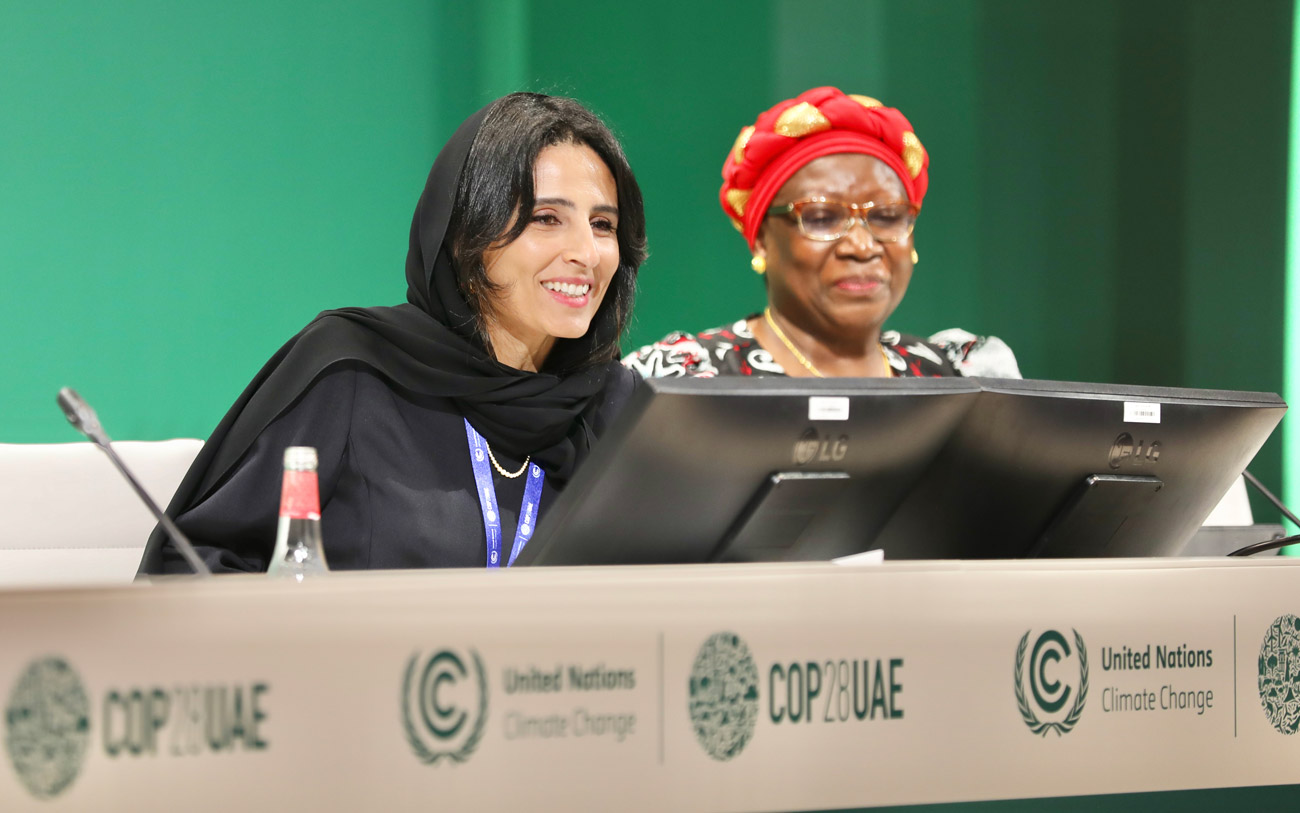English Español Français العربية
During the Global Conference on Gender and Environmental Data held on November 28 in Abu Dhabi, Razan Al Mubarak, UN Climate Change High-Level Champion for COP28, highlighted the need for gender equality and wider support for female leadership in climate action.
The two day-conference, which preceded COP28 in the UAE, was organized by the Offices of the President of COP 28 and the UN Climate Change High-Level Champions, alongside the UNFCCC, UN Women, IUCN, and the Women’s Environment and Development Organization (WEDO).
In a compelling call for action, Ms. Al Mubarak emphasized the critical need for gender equality and more support for female leadership in climate action as she inaugurated the conference, and spoke on the importance of inclusion and hearing all voices:
“As we get ready to kick-off COP28, I am emphasizing the symbiotic relationship between climate and nature, the importance of inclusivity, and especially, the empowerment of women and girls in climate action. It is encouraging that 79% of Parties have now included references to gender in their Nationally Determined Contributions, or national climate action plans. But we know that there is a significant data gap on gender and the environment. We must change that, to ensure effective planning and policymaking. As we transition towards a climate-friendly, sustainable and just future we need to be guided not by assumptions but evidence.”
Ms. Al Mubarak, who is also President of the International Union for Conservation of Nature (IUCN), recognized that there is a scarcity of gender-disaggregated data, which is necessary to gauge how policies are affecting women and girls:
“Data is only available for two out of ten gender-environment related SDG indicators. Gender data is also scarce for other environment topics such as climate change, disasters and conservation. Without data, we can never have truly gender-responsive finance and therefore, we can never truly have a gender-just transition.”
